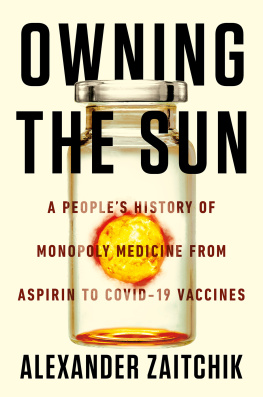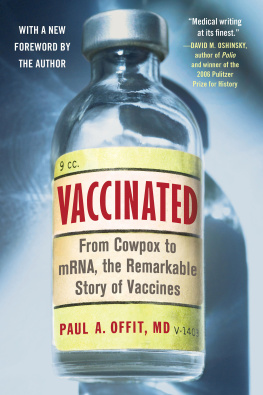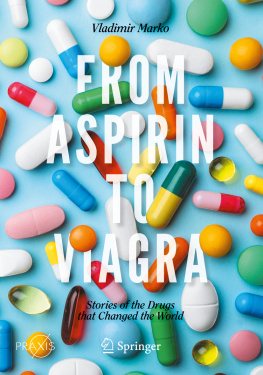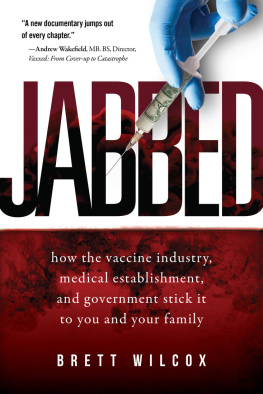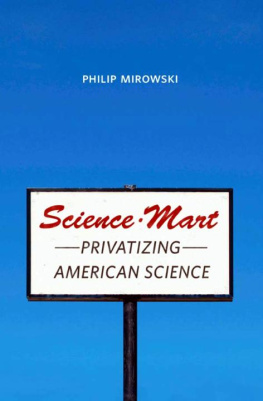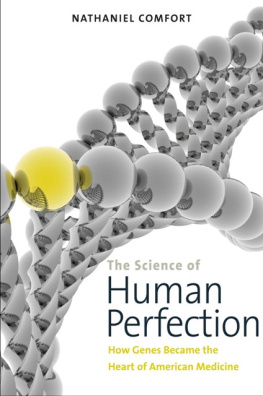Table of Contents
Guide
Page List

ALSO BY ALEXANDER ZAITCHIK
The Gilded Rage:
A Wild Ride Through Donald Trumps America
Common Nonsense:
Glenn Beck and the Triumph of Ignorance

For Alba and Izzie
Inventions financed with public funds should inure to the benefit of the public, and should not become a purely private monopoly under which public-financed technology may be suppressed, used restrictively, or made the basis of an exaction from the public to serve private interests... Public control will assure free and equal availability of the inventions... [and] will avoid undue concentration of economic power in the hands of a few large corporations... Scientific and technological research conducted or financed by the United States represents a vast national resource, rivalling in actual and potential value the public domain opened to settlement in the last century... The soundest disposition of Government-financed technology is as a general rule to open it freely to the public... and spread the benefits of the scientific advances as widely as possible.
Final Report of the Attorney General to the President on Government Patent Practices and Policies, 1947
CONTENTS
I N THE BEGINNING, THERE WAS ALCHEMY, A FUSION OF METALLURGY and magic. The alchemist probed nature in pursuit of the unnatural, of eternal life and the power to make silver from lead and turn copper into gold. The alchemic grail known as the philosophers stone was never found. But the foundations of modern chemistry and pharmacy were laid in those discoveries made in failure, and upon them grew an industry that over the last century finally achieved the elusive sorcery of turning base elements into precious gold.
Consider this. Between 2000 and 2018, the thirty-five largest drug companies reported cumulative gross profits of almost $9 trillion. During that same period, the value of the worlds total gold reserves crested at just over $7 trillion. The magic behind this feat has nothing to do with synthesizing common molecules into more valuable ones. The industrys Merlins arent its scientists and technicians but its patent lawyers and lobbyists. The products these companies sell have value, but not so much as to surpass all the gold thats ever been mined. The science, once released, can be copied, in most cases very easily. The kind of wealth amassed by the pharmaceutical industry can be created only by the political magic of monopoly. If the state ceases to grant, enforce, and extend exclusive rights to the production and sale of drugs and medicines, the power to spin private gold from public investment and human illness combusts and disappears, like the purified bone dust phosphorus of alchemy legend.
This is not a book about how to hasten the combustion of monopoly medicine, or about the many fine alternatives that could take its place to humanitys benefit. It is the story of how monopoly medicine came to be, from the earliest debates over the morality and practical value of granting monopolies on lifesaving inventions, to the globalization of this right by Washington on a basis of forced consent. It is the long prequel to our current age of crowdsourced online medical fundraisers; of hedge funds and Martin Shkreli getting a say in who lives and for how long; of the minting of biotech billionaires during a pandemic while vaccine factories sit idle; and of the lobbying, propaganda, and marketing machines that protect the system from the steaming volcano of a public that understands it to be fundamentally corrupt and unjust.
The drug companies spend heavily on telling and retelling their version of this story. Thats actually their in-house trade name for itthe drug story. According to the industry narrative, monopolies and the outsized profits they generate can alone incentivize and deliver innovation. The system is working just fine; any interference will cost humanity dearly. The following account is told from the perspective of the dissenters, critics, and antagonists who see this as a dishonest and dangerous fiction. These figures have shadowed and challenged the development of medical monopoly at every step, issuing democratic echoes of the English king Henry IV, who in 1404 decreed it a felony to multiply gold or silver, or use the craft of multiplication by alchemic means. The Act Against Multipliers wasnt about shutting down pagan rituals or taking a stand against supernatural criminalityit was a preemptive strike against private wealth becoming private power strong enough to challenge the authority of the Crown. Centuries later, the same fear inspired spirited republican opposition to monopoly in the North American colonies. This hostility survived the founding and continues to make cyclical appearances of varying intensity. Since World War II, the pharmaceutical industry has provided a sitting target for the countrys deep if suppressed democratic instinct to favor broad public interests over narrow private ones.
Over the last seven decades, the industry has become a target so fat and unmissable that taking a swing at it unblindfolded almost feels unfair. But its grotesque girth is the very thing that has allowed it to become so devilishly elusive. As Henry IV, Thomas Jefferson, and Louis Brandeis understood, if you allow the unnatural multiplication of private wealth, eventually its power will slip all social constraints. You will wake up one day to find Merlin wearing the crown.
Franklin Delano Roosevelts famous speech to the 1936 Democratic convention was a warning against this scenario coming to pass. Though Roosevelt declared war against unnamed economic royalists, the New Dealers understood the real targets to be the invisible sources of their awesome powerthe weak regulations, bad laws, and corrupted statutes that enabled monopolies to dominate the economy and threaten the countrys experiment in self-government. Patents were a major concern of the late New Deal, but not drug patents specifically, not quite yet. In the 1930s, the pharmaceutical industry was in the final throes of a painful molting process. It was shedding the last vestiges of its own anti-monopoly tradition and assuming the mindset and characteristics of those new economic dynasties, thirsting for power fingered in Roosevelts speech. Anyone listening to that speech from the worlds of academic research, drug manufacture, corner druggery, or organized medicine must have heard echoes of the sulfurous anti-monopoly sermons that had filled the broad canopy of American medicine for as long as anybody could remember.
The drug industry had mostly severed its connection to this tradition by the end of World War II, when the U.S. government began to nest the biggest bounty of scientific research the world had ever seen. The contest between public and private interests vying for guardianship of this science runs throughout the following pages. That storyline is charged by the inherent tension created by granting medical knowledge, or any knowledge, the same property status as a clarinet or a tractor. Weve become dulled to the strangeness of it, but the concept of intellectual property remains profoundly counterintuitive, if not paradoxical. If you possess a milking cow, and your neighbor steals that cow, you have lost your cow. Consult any cultureEast or West, ancient or modernand some form of revenge or legal remedy would be prescribed. If, however, you discovered a process for making cows milk healthier or safer to drink, and your neighbor imitated the method to make his cows milk healthier or safer, the balance of opinion would swing against the judgment that a theft, or any other punishable crime, had occurred. This is because your neighbors possession of your idea does not reduce your store of it. In fact, the opposite is true: scientific knowledge, especially related to food and medicine, is a public good whose benefitssay, maximizing vaccine production at the lowest cost during a pandemicincrease the more broadly the knowledge is diffused. Economists call such goods non-rivalrous. In Thomas Jeffersons formulation, He who receives an idea from me, receives instruction himself without lessening mine; as he who lights his taper at mine, receives light without darkening me.

